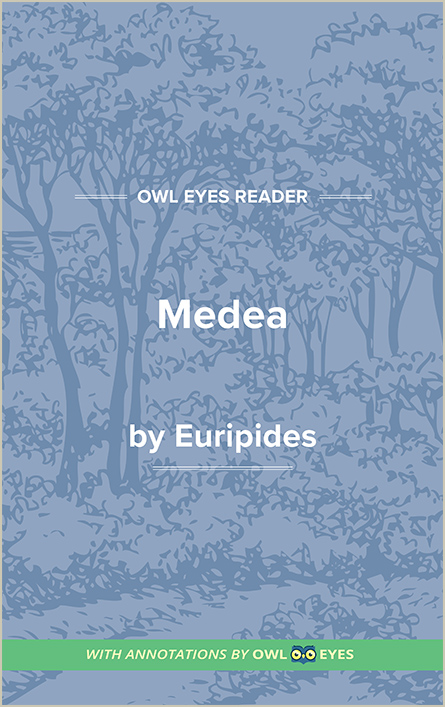Analysis Pages
Plot in The Medea
Plot Examples in The Medea:
The Medea
🔒"Yet underneath . . . nay, all the tale of it Were graceless telling; how sheer love, a fire Of poison-shafts, compelled thee with desire To save me...." See in text (The Medea)
"My fathers' father, the high Sun..." See in text (The Medea)
"For never child of mine shall Jason see Hereafter living, never child beget From his new bride..." See in text (The Medea)
"Maia's..." See in text (The Medea)
"Hecatê..." See in text (The Medea)
"And more, thou hast made menace . . . so the alarms But now have reached mine ear . . . on bride and groom, And him who gave the bride, to work thy doom Of vengeance...." See in text (The Medea)
"banishment..." See in text (The Medea)
"Jason doth forsake My mistress and his own two sons, to make His couch in a king's chamber...." See in text (The Medea)
"Hunted for that fierce sin, to Corinth here With Jason and her babes. ..." See in text (The Medea)
"NURSE..." See in text (The Medea)

